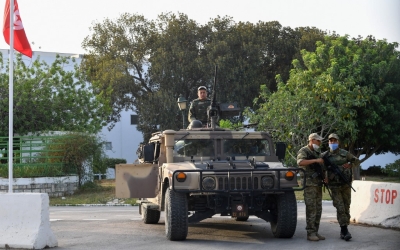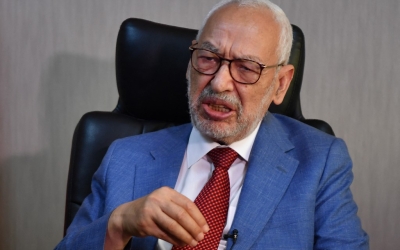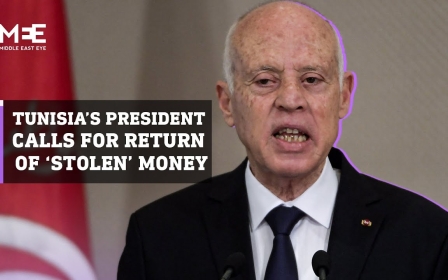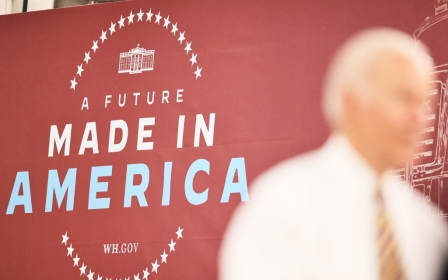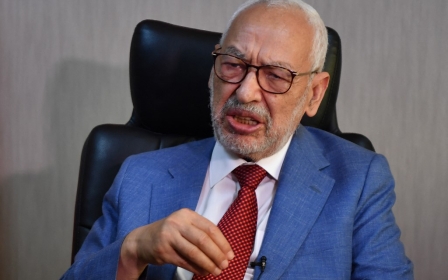Tunisia coup: MP Yassine Ayari 'abducted by presidential security forces'
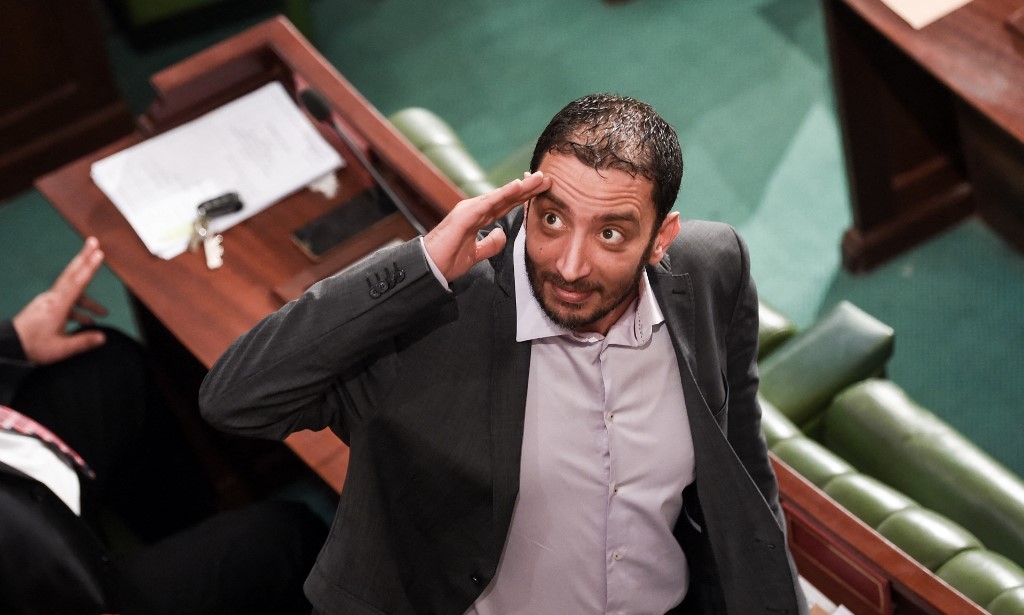
Tunisian security forces on Friday arrested member of parliament Yassine Ayari after he denounced President Kais Saied’s power grab as "a foreign-backed military coup."
Ayari's wife, Cyrine Fitouri, told Reuters by phone that about 20 men in plainclothes, who introduced themselves as members of a presidential security unit, raided their home earlier on Friday and used violence as they detained him.
"They took him forcefully while his mother was shouting," she said, adding that they told the family not to film them as they took him away.
Three days ago, Ayari, also a blogger and member of the Hope and Labour movement, criticised President Saied’s shock decree on Sunday to sack the prime minister, freeze parliament and assume judicial powers for a period of 30 days following anti-government protests.
The Hope and Labour movement has described Ayari's arrest as an “abduction” by presidential security forces.
In a statement on Friday, the movement said the MP was “abducted by a large group of agents who identified themselves as presidential security, in front of his home, and taken without any judicial permission or informing his wife of where he was being taken.”
Ayari had previously faced charges of “defaming the military” and “offending the President of the Republic” over Facebook posts accusing former President Beji Caid Essebsi of trying to use the military to repress Tunisians. He was sentenced by a military court in June 2018 to three months in prison for the charges.
In 2015, he served three months in prison over blogposts he wrote alleging financial abuses by army officers and defence ministry officials in a case Human Rights Watch had described as "not worthy of the new Tunisia".
Military courts in Tunisia have used article 91 of the military code to try civilians since the toppling of Zine El Abidine Ben Ali in January 2011.
It remains unclear what charges, if any, Ayari is now facing.
In May, the opposition politician accused President Saied of bearing responsibility for the loss of a batch of Covid-19 vaccines.
In a TV interview, Ayari said the shipment of vaccines was scheduled to arrive in Tunisia through the World Health Organisation’s Covax programme, which provides coronavirus vaccines to developing countries.
Ayari added that Saied needed to give an approval signature in order for the batch of vaccines to be shipped to Tunisia, but failed to meet the deadline - leading the shipment to be diverted to Nigeria instead.
Purge of top officials
Later on Friday, Tunisian news agency TAP reported that authorities are investigating four members of Ennahda, the largest party in the parliament, for "attempted violence" over scuffles outside the parliament earlier this week.
Ennahda staged a sit-in in front of the parliament on Monday to protest Saied's moves to consolidate power. The protesters and Saied's supporters threw stones and bottles at each other during the demonstration, according to Reuters.
TAP cited a judicial source as saying that the suspects encouraged locals "equipped with clubs" to carry out acts of violence. The four include the former bodyguard of Parliament speaker and Ennahda co-founder Rached Ghannouchi and a member of his staff.
Saied also on Sunday lifted the parliamentary immunity of lawmakers, paving the way for their potential prosecution. He justified the move by citing article 80 of the constitution, which allows the head of state to take unspecified exceptional measures in the event of an "imminent threat".
The Tunisian constitution states that "measures necessitated by this exception situation" can be used, but that there must be a consultation with the speaker of parliament and that the constitutional court must be informed - an institution that has not yet been created in Tunisia, one of the main unfulfilled promises of the 2011 revolution.
The absence of the court means that there is now no mechanism to evaluate whether the circumstances were appropriate to invoke Article 80.
The purge of top officials has so far targeted at least 25 people.
While his supporters have seen the move as a decisive step to restoring stability in the crisis-ridden country, opposition politicians from across the political spectrum have denounced it, with Ennahda calling it a "constitutional coup".
On Wednesday, Tunisian judiciary announced a probe into Ennahda and two other political parties over allegations of foreign funding during the 2019 election campaign. It remains unclear whether the probe will mark the beginning of a crackdown on the parties.
A senior member of Ennahda told Middle East Eye on Wednesday that the probe "could be used as a pretext to set up an authoritarian regime" if the president continues to assume judicial powers.
Saied's power grab came two months after Middle East Eye revealed a letter written by Saied’s advisers urging him to seize control of the country using Article 80 of the constitution, which he now has.
MEE has also revealed this week that the deposed prime minister, Hichem Mechichi, was beaten up prior to agreeing to step down on Sunday. Mechichi has denied the report.
Middle East Eye propose une couverture et une analyse indépendantes et incomparables du Moyen-Orient, de l’Afrique du Nord et d’autres régions du monde. Pour en savoir plus sur la reprise de ce contenu et les frais qui s’appliquent, veuillez remplir ce formulaire [en anglais]. Pour en savoir plus sur MEE, cliquez ici [en anglais].


